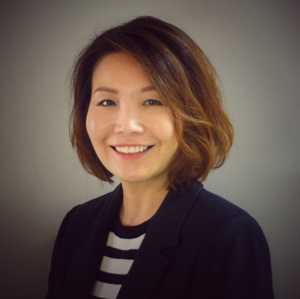Flexibility key to retain talent in Asia
- Josephine Tan

As flexible work arrangements (FWAs) shift from a perk to a necessity, Singapore’s business landscape is undergoing a profound transformation. Insights from ADP’s People At Work 2024 survey revealed that workplace flexibility is becoming increasingly non-negotiable. Nearly half (41%) of employees in Asia-Pacific have experienced greater flexibility over the last 12 months, the highest percentage globally.

“Flexibility enhances employee satisfaction, productivity, and retention, making it a crucial component of modern workplace strategies,” Yvonne Teo, Vice-President of HR, Asia-Pacific, ADP, told HRM Asia. The newly introduced Tripartite Guidelines on FWAs in Singapore further bolster this trend, providing a structured framework to promote work-life balance.
The guidelines are not merely a regulatory update but a call for HR leaders to rethink traditional workplace models. According to Teo, “To effectively implement FWAs, HR leaders must balance employee needs with operational demands.” This balancing act can be achieved through tools like payroll automation and workforce management systems, which streamline processes and enhance efficiency.
In addition, open communication is paramount. “By aligning their practices with the changing priorities of employees in a dynamic labour market, organisations can improve employee retention, build resilience, and maintain a competitive edge,” she emphasised.
While FWAs are on the rise, the return-to-office (RTO) movement tests organisations’ ability to maintain employee morale, engagement, and productivity. For many employees, remote work remains a preferred choice, with RTO policies potentially jeopardising work-life balance.
“As organisations implement RTO policies, it is crucial to balance this transition with ongoing flexibility, such as flexible working hours or hybrid models,” Teo advised. She highlighted the importance of clear communication to build trust and recommended measures like commuting benefits and mental health resources to ease the transition.
READ MORE: From AI to employee wellbeing: ADP reveals HR priorities for 2025
Moreover, redesigning office spaces to function as collaborative hubs can significantly enhance engagement. “Focusing on performance outcomes rather than physical presence is key to maintaining productivity,” she added.
The concept of flexible work is poised to become a cornerstone of workplace strategy across Asia over the next decade. ADP’s 2025 HR Trends Guide underscores the role of AI in this evolution. Teo continued, “AI will automate routine tasks and enhance decision-making through predictive analysis, helping organisations become more agile and data driven.”
By leveraging cloud-based solutions, mobile-first technologies, and AI-driven insights, ADP equips organisations to adapt to these shifts seamlessly. “For more than 75 years, ADP has led payroll and HR innovation, helping organisations adapt to these trends,” she concluded. “By leveraging ADP’s comprehensive dataset and cutting-edge tools, organisations can navigate workforce changes confidently and position themselves for long-term success.”






